“Master Your Emotions” is a compelling self-help book that delves into the intricate realm of human emotions and provides valuable insights on how to gain mastery over them. Authored by an experienced psychologist and life coach Thibaut Meurisse, this book offers practical guidance and effective techniques to navigate the vast spectrum of emotions we encounter in our daily lives. By understanding and harnessing our emotions, the book suggests, we can unlock our true potential and lead a more fulfilling and empowered existence.
Introduction
Today, we are going to delve into the book “Master Your Emotions.” This book is your guide to mastering control over your emotions, enabling you to achieve your desired results with a positive outlook on life. If you find yourself struggling with negative feelings or need assistance in dealing with stress, this book is here to help you navigate through various negative emotions effectively. It provides a comprehensive understanding of how our emotions work and presents specific techniques to harness them for positive outcomes. By learning how to handle negative emotions, you can lead a happier and more fulfilling life. In the pages of this book, you will explore various essential topics, including:
1. A Simple Formula to Reprogram Your Mind for More Positive Emotions.
2. Simple Strategies to Cope with Negative Emotions.
3. How to reshape your life’s narrative for better control.
4. Utilizing your emotions to fuel personal growth and development.
5. Mastering Your Emotions and engaging in practical exercises that foster a positive impact on your emotional well-being.
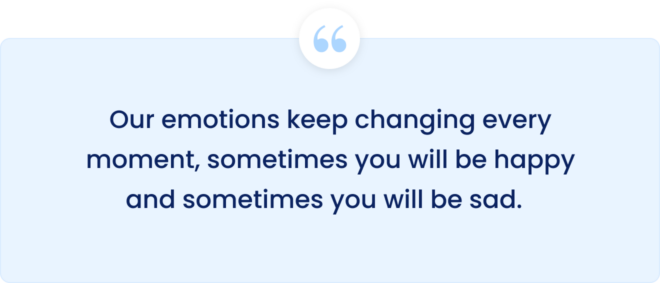
If you seek to rid yourself of negative emotions, gain control over your emotional responses, and embrace a more positive and peaceful existence, then “Master Your Emotions” is your perfect companion.
To facilitate a better understanding of the book’s content, we will be discussing it in 15 separate chapters. Let’s embark on this journey of emotional mastery and personal growth together.
Chapter 1: How Your Survival Mechanism Affects Your Emotions?
The brain plays an essential role in our lives as it helps us survive. Our ancestors faced numerous challenges to survive, which led our brains to develop mechanisms to detect danger. Consequently, our brains tend to lean towards negativity and trust negative thoughts, fearing potential rejection. This fear of rejection often prevents people from pursuing positive endeavors, pushing them towards negative thinking. To counter this, it is crucial to adopt a positive outlook on life, focusing on the positive aspects of every situation, and avoiding unnecessary worry and negative thoughts.
The primary task of our minds is to ensure our safety and security. However, to achieve happiness and inner peace, we must learn to control our emotions effectively. Additionally, our minds release dopamine, a neurotransmitter that induces feelings of happiness, during activities like gambling, sex, eating delicious food, or exercising. Unfortunately, many people have developed addictions to these activities, leading them further into negativity. To find true happiness and break free from negativity, it is essential to take control of our emotions and overcome these addictions.
Here are two steps you can take to begin this process:
1. Identify and write down the things that give you temporary happiness but are harmful in the long run, such as pornography, cigarettes, or excessive alcohol consumption.
2. Take necessary actions to remove these harmful elements from your life.
Now, with this understanding, it becomes clear how our survival mechanism can negatively impact our emotions and hinder our ability to find true happiness. In the next section, we will explore the concept of ego and its influence on our emotions.
Chapter 2: What is ego?
One may feel a sense of pride. The ego is a natural part of human existence, neither inherently good nor bad; it is simply a consequence of a lack of self-awareness. As one becomes more self-aware, the ego tends to diminish. The ego desires recognition for accomplishing great things and receiving positive rewards to make its mark. Companies often capitalize on this aspect of human nature, understanding that people buy products not just for their functionality but also for the associated feelings and emotions.
Feeling the need for someone or something is also tied to the ego. When one realizes that they do not depend on someone or something, they can genuinely enjoy their company without expecting anything in return. Our emotions are significantly influenced by how we perceive our lives and the world around us. By adopting a stronger and more confident posture while simultaneously letting go of attachments to material possessions, relationships, or fixed ideas, we invite more positive emotions into our lives.
However, the ego can never be fully satisfied. It perpetually craves more – more fame, more respect, more recognition. This constant pursuit of more can prevent one from becoming emotionally strong. To cultivate emotional strength and find inner peace, it is essential to address the doubts and insecurities that the ego brings. By confronting and resolving these doubts, one can experience a sense of contentment and emotional calmness.
The journey towards emotional strength involves embracing self-awareness and acknowledging the impact of the ego on our emotions. By understanding our desires and attachments, we can work towards greater emotional balance and fulfillment. As we learn to let go of the insatiable desires of the ego, we create space for genuine contentment and lasting emotional well-being.
Chapter 3: Nature of Emotions
Our emotions are in a constant state of flux, shifting from happiness to sadness and everything in between. While it is natural for emotions to change, we can still exert some control over them. Expecting to be happy all the time sets unrealistic standards and can lead to self-blame when we fail to meet those expectations. Understanding that emotions are dynamic and diverse allows us to embrace the full spectrum of human experiences, including both happiness and occasional sadness.
The author emphasizes that negative feelings are not inherently bad or useless; in fact, they can serve a purpose. Just as we need to look down before reaching heights, negative emotions can offer valuable insights and aid in our personal growth. Even the strongest individuals, like Elon Musk, experience moments of mental breakdown, yet they emerge from these experiences stronger. Negative emotions can act as catalysts for achieving objectives and provide an opportunity for self-discovery. They do not make us weak but instead, they equip us to navigate through life’s challenges.
To harness the positive potential of emotions, it is essential to focus on removing the factors causing sadness and reinforcing those that bring strength and happiness. When confronted with negative emotions, it is crucial to pay attention to their underlying causes. By doing so, we gain clarity about the root of our feelings and can make informed decisions. Instead of succumbing to impulsive reactions, we can choose to respond thoughtfully and positively.
Controlling our emotions empowers us to face any challenge with a positive outlook. This does not mean suppressing emotions but rather understanding them and using their energy constructively. As we continue our journey, we will explore the various factors that influence our emotions, delving deeper into the components that shape our emotional experiences. By understanding these influences, we can further enhance our emotional intelligence and lead more fulfilling lives.
Chapter: 4 The Impact of Sleep on Your Mood.
Emotions play a powerful role in our lives, influencing how we feel, behave, and interact with others. These emotions are influenced by various factors, and one significant factor is the amount and quality of sleep we get. Lack of sleep can lead to negative feelings, affecting our mood and overall well-being. When we don’t get enough sleep, we may experience emotions like anger, sadness, irritability, and a general sense of negativity.
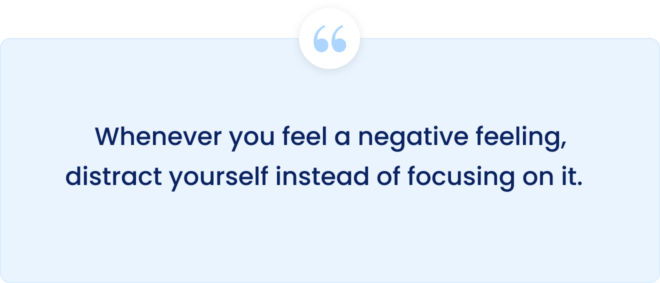
Moreover, insufficient sleep can have severe consequences on our health, even increasing the risk of death. Studies have shown that people who consistently sleep less than six hours per night have a 13 percent higher risk of mortality compared to those who sleep between seven and nine hours.
To improve the quality of our sleep and consequently our emotional well-being, we can adopt some simple yet effective methods:
1. Create a conducive sleeping environment: Opt for a dark-colored room as research suggests that darker colors promote better sleep. Using curtains can help block out external light and create a relaxing atmosphere.
2. Limit electronics before bedtime: Late-night use of electronic devices like smartphones, tablets, and TVs can disrupt the brain’s balance and interfere with our ability to fall asleep and stay asleep. It’s best to avoid using such devices for at least an hour before bedtime.
3. Relax your mind: Before going to bed, try to unwind and give your mind a break from thinking about work or other stressful matters. Engaging in calming activities like reading a book, practicing relaxation techniques, or listening to soothing music can help ease your mind and prepare it for rest.
4. Be mindful of hydration: While staying hydrated is essential, drinking too much water close to bedtime can lead to frequent bathroom trips and disrupt your sleep. Aim to reduce water intake at least two hours before going to bed.
By implementing these straightforward practices, we can improve our sleep quality, allowing our bodies and minds to rejuvenate during the night. As a result, we can experience more positive emotions during the day, fostering better overall emotional well-being and leading to a more satisfying and fulfilling life. Remember, taking care of our sleep is a fundamental step towards nurturing our emotional health as beginners.
Chapter: 5 Use Your Body to Influence Your Emotions
As Amy Cuddy puts it, our body, mind, and behavior are intricately connected, and we have the power to influence our emotions by changing our body language and posture. When you adopt a confident and happy posture, it sends positive signals to your brain, leading to increased feelings of happiness and confidence.
In one of Amy Cuddy’s experiments, participants who held a high-power posture for just two minutes exhibited signs of being more confident and powerful individuals. This was accompanied by hormonal changes, with a 25% increase in testosterone, which is associated with feelings of confidence and assertiveness, and a 10% decrease in cortisol, the stress hormone. On the contrary, those who adopted a low-power pose for the same duration experienced a decrease in testosterone by 10% and a 15% increase in cortisol, which can lead to feelings of stress and low confidence.
This experiment clearly demonstrates that our body language can significantly impact how we feel. Instead of engaging in negative self-talk, consciously tell yourself positive affirmations like, “I am happy,” “I can achieve my dreams,” and “I am confident.” By doing so, you can shift your mindset towards a more positive and empowered state.
Furthermore, maintaining a positive outlook in life can also contribute to genuine happiness. Engaging in regular workouts is one way to boost both your physical and emotional well-being. Physical activity releases endorphins, also known as “feel-good” hormones, which can elevate your mood and help you feel more content and joyful.
It is essential to incorporate exercise into your daily routine, even if it’s just for 10 to 30 minutes. The benefits of regular physical activity extend beyond the physical realm, positively impacting your mental and emotional health as well.
Chapter: 6 Using Your Thoughts to Influence Your Emotions.
Ralph Waldo Emerson once said, “You become what you think day and night.” So, focus solely on what you want to manifest in your life. Incorporate daily meditation to infuse positive emotions. Practice visualization to embrace gratitude, excitement, and happiness. By doing so, you’ll prime your mind to attract the things and feelings you desire. Remember, your thoughts have the power to shape your reality.
Chapter: 7 Using Your Words to Influence Your Feelings.
Your words hold tremendous power over your thinking and behavior, just as your feelings impact your life. Thoughts, words, and behavior are intertwined and mutually influential. When you approach tasks with uncertainty, your self-confidence suffers. Conversely, firm intentions lead to increased confidence and focus, resulting in noticeable differences in outcomes. To boost your self-confidence, trust yourself and make decisions with determination. Replace self-doubting words with empowering ones to enhance your confidence in speaking.
Minimize the use of words like:
– Maybe
– Perhaps
– If everything goes well
Replace them with:
– I will
– I can
– Absolutely
– Of course
By using positive and empowering words, you can influence your emotions and foster a more confident mindset.
Chapter: 8 How Your Breath Affects Your Emotions?
You can survive for two days without food, but you can’t last more than a few minutes without breathing. Surprisingly, many people don’t know how to breathe properly, and as a result, they get trapped in negative emotions. Breathing correctly offers various benefits, especially in reducing anxiety. In the book “Breathewalk: Breathing Your Way to a Revitalized Body,” Gurucharan Singh Khalsa and Yogi Bhajan explain the advantages of slow breathing techniques:
– Eight breath cycles per minute: Relieves stress and increases awareness.
– Four breath cycles per minute: Enhances a sharp sense of awareness.
– One breath cycle per minute: Pacifies anxiety and fear from the mind.
By applying these breathing methods, you can practically experience the benefits of proper breathing and transform your mood. Controlling your emotions becomes easier when you understand how emotions are affected and learn how to manage them. Now, let’s delve into how we can change our feelings.
Chapter 9: How to Change Your Emotions?
To change your feelings, it’s essential to understand how they are formed. The more you harbor negative thoughts in your heart, the unhappier you’ll feel. Conversely, accepting the truth can alleviate pain and reduce negative emotions. Understanding the process of emotional formation is crucial, as it can impact your overall well-being.
Emotions can be categorized into two types. The first type arises without any conscious imagination, while the second type is created by repetitive thoughts and recognition. When certain thoughts persist, they become powerful feelings. However, when you start thinking less about a particular issue, your emotions gradually weaken.

Remember, people perceive you based on your feelings, as they influence your behavior. By cultivating positive thoughts and feelings, you can exhibit better behavior in front of others.
To achieve this, consider the following:
1. Avoid dwelling on negative past experiences, and instead, focus on positive incidents.
2. Embrace feelings in the present that promote happiness and positivity.
By adhering to these principles, you can learn to shape your feelings positively and lead a more fulfilling life.
Chapter 10: Letting go of your feelings
One thing is certain: your thoughts and feelings will determine your future. Since we become what we think, it is crucial to carefully choose our thoughts to foster positive emotions in our minds. In everyone’s life, there are numerous memories, big and small. Focus on recalling a memory that brings you joy. When negative feelings arise, use that positive memory to counteract and dispel the bad emotions.
Here are important steps to help you rid yourself of negative feelings:
Step 1: Identify an emotion you want to work on and improve to feel better. It doesn’t have to be a ‘big’ feeling; even mild emotions like a lack of desire or mild anger can be addressed.
Step 2: Ask yourself one of these questions:
1. Can I let go of this feeling?
2. Can I stop this feeling?
3. Can I adopt a different sentiment?
Step 3: Then ask yourself:
1. Shall I let go of this emotion?
2. Shall I stop this emotion?
3. Or shall I adopt this different sentiment?
Answer each question honestly with a simple “yes” or “no.” If you receive a ‘no’ answer to any of these questions, you can let go of that feeling.
Step 4: Ask yourself, “When”? Your answer should be, “Now.” Release that feeling immediately.
Step 5: Repeat this process as many times as needed to eliminate the negative feeling.
By following these steps and learning to let go of emotions, you will gain a profound understanding of how emotions work and how to release them effectively. This practice will empower you to shape your emotions positively and create a brighter future for yourself.
Chapter 11: Preparing Your Mind to Feel More Positive Emotions.
So far, we have learned how emotions are created and started a process to overcome negative emotions. Now, let’s focus on organizing our minds to experience positive emotions more rapidly in our lives. Our imagination holds tremendous power – through thoughts, we can visualize and feel things. This ability allows us to manifest the things we imagine into reality. Envision the things you desire in your life, and recognize how beneficial it would be to have them. When you understand the value of something, you are motivated to take the necessary steps to achieve it. Think positively, and you’ll achieve positive outcomes.
In addition, engage in the following activities:
1. Reflect on the last time you felt negative emotions.
2. Observe how long that emotion lingered in your mind.
3. Consider the actions you took to overcome that negativity.
4. Ask yourself, “How could I have approached this differently?”
5. Identify the steps you could have taken to positively influence your emotions.
6. Begin implementing these actions in your life.
By practicing these activities, you will become more adept at transforming negative emotions into positive ones. Remember that you have the power to shape your thoughts and emotions, ultimately leading to a happier and more fulfilling life. Stay mindful of your feelings and make the conscious effort to choose positivity. With time and practice, you will experience a significant improvement in your emotional well-being.
Chapter 12: Short Term and Long Term Solutions to Deal With Negative Emotions
No matter how much control you have over your mind, there will be times when you experience negative emotions. To address this, the writer has provided both short and long-term solutions:
Short-Term Solutions:
1. Alter your emotional state: Whenever negative feelings arise, distract yourself from them. Engage in activities such as listening to music, watching a movie, going for a walk, or engaging in vigorous exercise.
2. Take necessary actions to change your emotions: Identify the cause of your negative emotions and take steps to address the underlying issues.
3. Acknowledge and share your feelings: Be aware of your negative emotions and confide in someone you trust, sharing your feelings can help relieve their intensity.
4. Take rest and envision positivity: Give yourself a break and imagine yourself accomplishing something positive and fulfilling.
Long-Term Solutions:
1. Understand your feelings: Reflect on why certain emotions arise and observe them without judgment. Engage in meditation to foster positive emotions.
2. Change your environment: Spend time in places where you feel comfortable and at ease.
3. Establish positive habits: Practice daily meditation, exercise regularly, repeat affirmations, and maintain a gratitude journal.
4. Take care of yourself: Focus on maintaining a balanced diet, getting 7-8 hours of sleep each night, and allowing yourself sufficient rest.
5. Seek professional help if needed: If you continue to struggle with negative emotions, consider consulting a doctor, as it may be indicative of depression or other underlying issues.
By implementing these short and long-term solutions, you can effectively manage and cope with negative emotions, leading to a more positive and fulfilling life.
Chapter 13: How Emotions Can Guide You In The Right Direction?
Although our feelings are constantly changing, they hold immense significance in our lives. Emotions play a pivotal role in driving personal growth and transformation. Self-awareness is a key aspect that can aid in this process. Without self-awareness, it becomes challenging to bring about meaningful changes in life, as one cannot address a problem until it is acknowledged.
Through self-awareness, you gain the ability to observe your thoughts, feelings, and behaviors without bias or judgment. It is crucial to be mindful and conscious of your actions in every endeavor you undertake. Being aware enables you to better understand your emotions, allowing you to make informed decisions and choose the right emotions to guide your actions. In turn, this not only shapes your life but also influences how others perceive you.
By embracing self-awareness and staying attuned to your feelings, you can harness the power of emotions to positively impact your personal growth and overall well-being.
Chapter 14: Taking care of what people think of you.
If you want to experience true happiness, start by considering yourself as the most important person in the world. Prioritize your well-being and do everything that brings you joy and contentment. Many people underestimate the power of their emotions and fail to realize their potential. By not harnessing this hidden power, they miss out on the opportunities to create positive change in their lives.
To unlock the potential of your emotions, view them as a tool to navigate through life’s challenges and achieve your goals. Communicate your desires clearly to your emotions so they can attract the right people, situations, and opportunities toward you. To gain insights into your feelings, maintain a journal where you record your emotions throughout the day. Rate your emotions on a scale of 1 to 10, and reflect on both positive and negative feelings. Identify the reasons behind these emotions and determine what actions and thoughts can help you feel positive emotions more frequently.
Moreover, self-respect plays a vital role in overall personal growth. Cultivate self-awareness, take responsibility for your actions, and live with honesty and integrity to enhance self-respect. When you develop these qualities, you will not only respect yourself but also earn the respect of others, contributing to a positive sense of well-being.
By understanding and utilizing your emotions and fostering self-respect, you can pave the way for a fulfilling and joyous life. Empower yourself to create positive change and attract happiness into your life.
Chapter 15: Lack of Motivation
Lack of motivation often indicates a lack of a compelling vision to propel you forward. To continuously move ahead, it is essential to harness motivation daily. Understand your strengths, personality, and preferences deeply to stay motivated. Surround yourself with motivated people, read inspirational stories, and watch motivating videos to keep your motivation high.
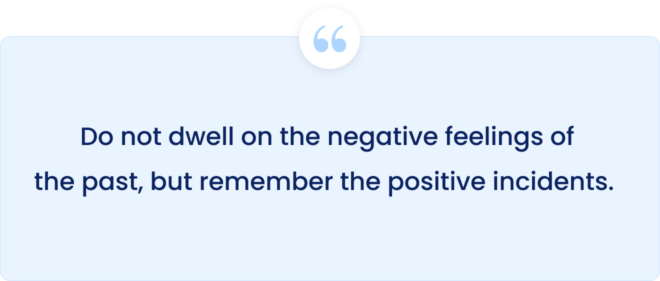
When you feel stuck in completing a task, follow these steps to overcome procrastination:
1. Make a list of all the tasks that need to be done.
2. Identify a task you have been putting off.
3. Now, complete that task.
To remove obstacles on your path to success, follow these steps:
1. List all the tasks or projects you want to complete.
2. Set specific timeframes for completing each task, adjusting as needed.
3. Focus on one project at a time until completion, especially for larger projects.
4. Reschedule or eliminate unnecessary tasks.
By adhering to these strategies, you will complete your tasks on time and stay motivated to move forward in life. Throughout this book, you have learned how to control your emotions effectively and progress in life. Always remember that feelings can change, and you hold the power to shape your thoughts. Embrace positivity, let go of worries, and get ready to move confidently towards a brighter future.
Conclusion
Know about the power of your feelings from this book. Our emotions change, so we can control our emotions by using the methods that influence our emotions. Also, stay healthy, be positive and believe in yourself to change your feelings. Remember you will become what you think, so think positive and move forward with control over your emotions. With this, when you learn to control your emotions, then you can be successful in your life and can achieve all that you want. I hope you have understood the book well and you will use the method of controlling your emotions to move forward in your life.
Book Review
“Master Your Emotions” is a transformative self-help book that empowers readers to gain mastery over their emotions. With practical exercises and insightful guidance, it offers a roadmap to emotional intelligence, fostering healthy relationships and personal growth. A must-read for anyone seeking a more fulfilling and empowered life.
Contents

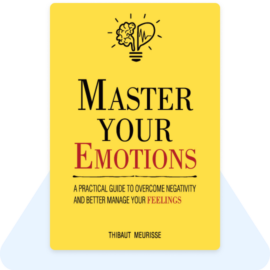


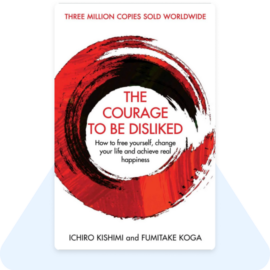

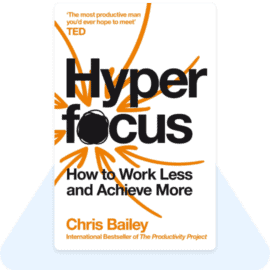


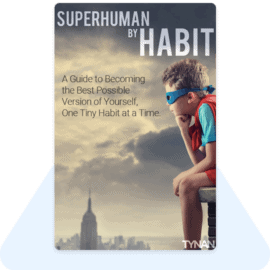


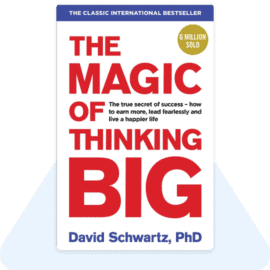

Thanku so much sir….
Line-if you want to experience true happiness start by considering yourself as the most important person in the world..